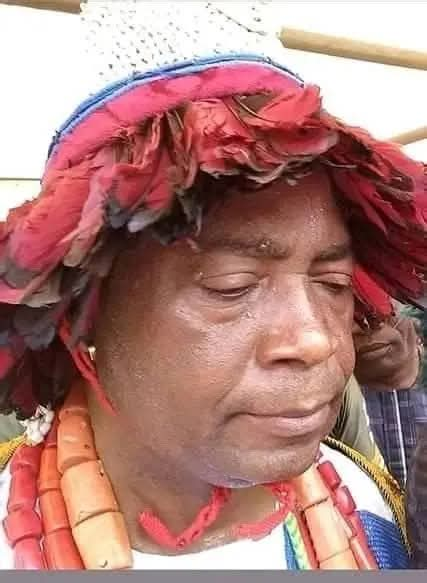By Barrister Usman Yakubu
In writing this rejoinder to the disjointed and distorted Facebook posts of one Aminu Musa Audu, I wish to most gratefully acknowledge the following historians whose works and writings I painstakingly consulted: Professors Ukwedeh, J. N., Yakubu A. Ochefu, the late Dr. Yusufu Bala Usman, my very senior learned friend and mentor Chief Festus Ogwuche, and P. C. Dike, who wrote his PhD thesis in 1977 at the University of Nigeria, Nsukka, on symbolism and political authority in the Igala Kingdom.
I embarked on this research because, as our late teacher and academic mentor, Dr. Yusufu Bala Usman, aptly stated, history is beyond fairytales, personal biases, or prejudices. Engaging with the history of an entire kingdom is serious scholarship.
2. The Igala Kingdom and the Attah System
On the emergence of the Igala Kingdom and the Attah System, several scholars have attempted to streamline the seemingly contradictory traditions of origin and the chronological problems they contain. HRH Professor Ukwedeh, for instance, suggests that these traditions represent divergences that are an essential feature of Igala history. According to him, such divergences arise from the cross-cultural contacts the Igala encountered as a result of their strategic location along the River Niger.
Boston argues that these traditions likely correspond to different phases of history: first, the Yoruba link (perhaps the most ancient), followed by the Benin connection, and, more recently, a period of Jukun suzerainty. In this line of thinking, Professor Ukwedeh situates the foundations of the kingdom—and indeed the monarchy—within the transformation of various pre-Attah mini-states into a formidable kingdom with Idah as its headquarters. Professor Ochefu further adds that this transformation process involved significant inputs from peoples external to Igala, hence the presence of Igbo, Benin, Yoruba, and Jukun elements in the history of the kingdom.
Igala oral traditions reveal that before the Attah system emerged, the various Igala communities underwent significant political and administrative changes beginning in the 16th century. These changes disrupted the stability of the communities. The forces of change centered on the evolution of large semi-urban settlements (ewo), popularly known as the Igala Mela (the nine Igala clans). According to Ukwedeh, by 1500 the early urbanization process of the Igala Mela clans had gained such momentum that they federated to better manage the problems arising from increasing heterogeneity and growing struggles over resources.
In this federation, leadership was vested in the eldest clan head (Onu), who was given the honorific title Attah (“Father”). However, internal political wrangling led to bitter inter-clan disputes. Those who lost out fled—some across the Niger into territories under the Oba of Benin’s suzerainty, and others to the southern banks of the lower Benue. Over time, new political actors arose in Idah, laying the foundation for a new political dynasty.
The Aji-Attah dynasty lasted until the mid-17th century, when the emergence of Attah Ayegba Om’Idoko marked a watershed in Igala political history. Political engineering and transformations under successive Attahs facilitated the rapid expansion of the kingdom. By the 15th century, Igala land controlled vast socio-economic and political territory, stretching from the Benue through Ajaokuta and Lokoja down to northern Igbo mini-states.
The Attah’s influence resonated so widely that Captain Trotter, leader of the 1841 expedition to Idah, described the mission in his report to Queen Victoria as an opportunity to meet the “King of Africa.” In a recent interview, former PDP National Chairman Dr. Ahmadu Ali (Ochada Attah Igala) revealed that it took him and others 30 years to assemble the documentary evidence that secured the court judgment affirming Igala ownership of Ajaokuta, Lokoja, and Koto. Ali further insisted that there is no contestation over these areas, since the Attah exercised jurisdiction over them up to present-day Southern Kaduna. Like many precolonial polities, however, the coming of the British arrested much of this historic development.
Attah Ayegba Om’Idoko fought wars both internally and externally, most notably the Igala-Jukun war. During this conflict, he invited Hausa warriors from Bebeji (in present-day Kano State) to serve as mercenaries. How he came to know of their prowess remains unclear—but certainly not through the fanciful Ajuma Oti theory Aminu attempts to peddle in his posts. In his determination to secure victory against the Jukun, Attah Ayegba even sacrificed one of his daughters, Princess Oma-Odoko—a historic act which Aminu now seeks to deny in his deliberate attempt to distort Igala history in favor of his Hausa forebears. He might as well have claimed that Princess Oma-Odoko was a myth.
The Attah of Igala was a sovereign ruler, subject to no imperial or external authority before the arrival of the Hausa from Bebeji. J. S. Boston described the Attah at that period as “holding all the ramifications and accoutrements of sovereignty and political authority.” Indeed, at the time, the only great cities widely known outside Africa were Timbuktu and Idah. Armstrong’s ethnographic survey of Africa further underscores the strong indications of Igala paramountcy during this era.
3. The Mischief of History: Aminu Audu’s Attempt at the Unmaking of Igala History
History can, unfortunately, become a tool for intellectual mischief-making. For much of the period when imperial history was being written, it was used precisely in this way—belittling earlier historical experiences in order to elevate its own narrative. This is exactly what Aminu Audu attempts, provocatively, through his Facebook posts.
To glorify the memory of his forefathers, Aminu goes so far as to claim that the Igala had no history—that Igala land itself did not exist—until the arrival of his supposed ancestor in Idah. Hear him: “Igala was a dependent territory under foreign ownership and control until the royal invitation of the 17th century Hausa reformer and scholar Abu Bebeji Akono to IDAH, in c. 1690. His pioneering intervention was instrumental to the independence of the Igala Kingdom and subsequent greatness in the comity of African pre-colonial political structures and development.”
He continues without any historical evidence: “A Kingdom must not be answerable to external control. Igala Kingdom was established in c.1690 as a direct product of the 17th century Hausa warrior-Abu Bebeji Akono’s landmark breakthrough in Idah. Igala Kingdom flourished throughout eighteenth and nineteenth centuries until it technically collapsed in similar circumstances as other nations in Africa in 1900, following British colonial occupation, creation and administration of Nigeria.”
When some of us began questioning his sources, Aminu hurriedly quoted a British scholar, “Clifford M,” whom he claims wrote: ‘The Ata of Igala Ayegba Omi’doko invited Muslims from Bebeji and Kano to prepare ‘Ogwu’ or charms for him to win wars. Often, he won and so persuaded these Mallams to stay. He gave them wives, and pieces of land on which to settle. Similar developments took place in Ankpa and other parts of the Kingdom and this can explain the presence of people of Hausa descent in many parts of Ankpa, Idah and other parts of the Kingdom…’
Aminu even claims to have spent twenty-five years investigating Clifford’s assertions. But this raises obvious questions: Where was he twenty-five years ago? Where did he publish the results of this so-called investigation? His claim is empty posturing.
Long before Aminu’s social media rants, Nigerian historians had already begun the serious intellectual task of deconstructing foreign scholarship on African history. From Professor Kenneth Dike and the Ibadan School of History, to Professor Abdullahi Smith and his student, the late Dr. Bala Usman, the Zaria School of History deliberately challenged the distortions of European historiography. Against this scholarly backdrop, Aminu’s claim amounts to little more than recycling colonial tropes to deny Igala agency.
Put simply, Aminu’s narrative insists that the Igala Kingdom had no history until his great-grandfather, Abu Akono, was supposedly invited by Attah Ayegba Om’Idoko. Such posturing lacks intellectual substance, is bereft of truth, and serves only as a means of compensating for his deep sense of inferiority about his origin and history. No person with sound knowledge of their own past would run down another’s history simply to validate their own.
4. The Coming of the Hausas from Bebeji
Historical records are clear: it was Attah Ayegba Om’Idoko, who reigned between 1614 and 1634, that invited some Hausa from Bebeji in Kano. These settlers later established themselves at Angwa Ayegba and Angwa Jamma, where they became fully integrated into the Attah’s court, even acquiring titles such as Ochalla Angwa Ayegba and Olimamu Angwa Jamma.
In this regard, Clifford M—cited by Aminu—was correct only in noting that the invited Muslims prepared charms (ogwu) to aid in the Igala-Jukun war. But nothing more. Available sources indicate that their contribution was limited strictly to that conflict; they neither created nor redefined the Igala Kingdom.
5. Conclusion
Aminu Audu’s claims represent not just historical distortion, but a deliberate attempt to unmake Igala history in favour of a manufactured narrative centred on his supposed Hausa ancestry. Only those burdened by an inferiority complex about their own history and historiography seek to distort and undermine the history of others in order to make theirs appear superior. Audu’s arguments collapse under scrutiny, devoid of credible sources and scholarly grounding. Igala history, with its deep traditions, political evolution, and sovereignty long before the 17th century, stands firmly against such revisionist mischief.


